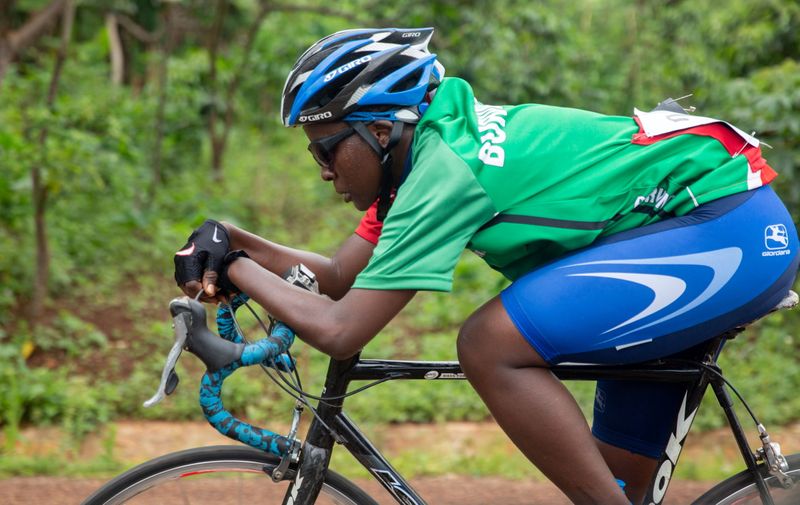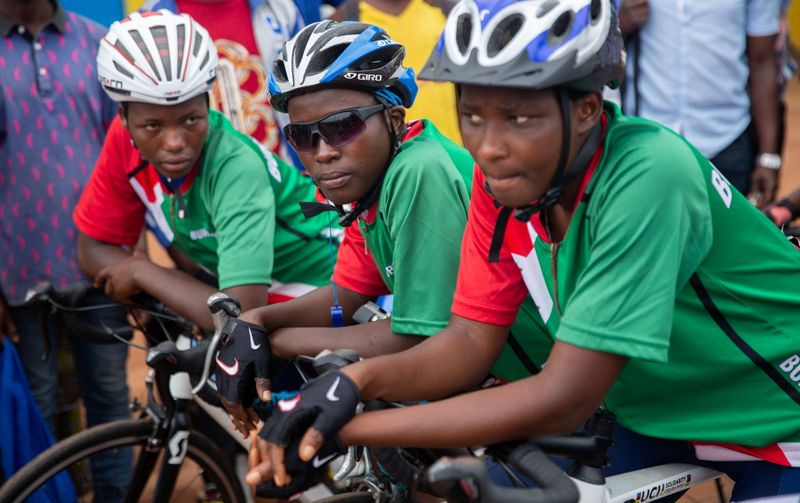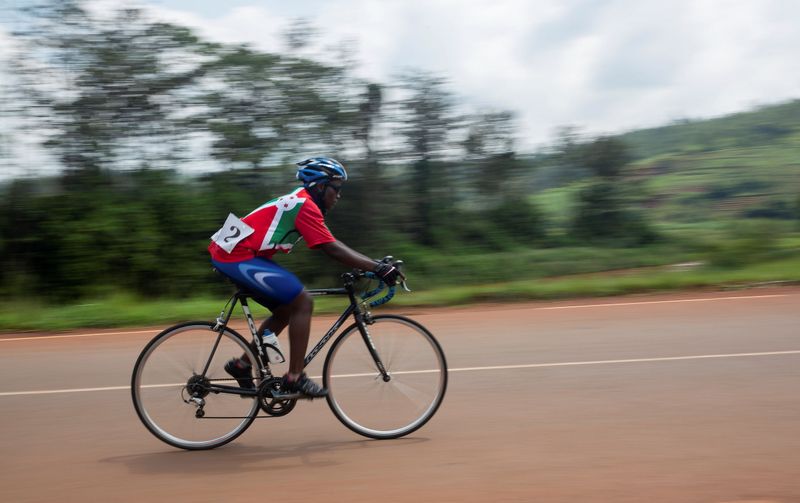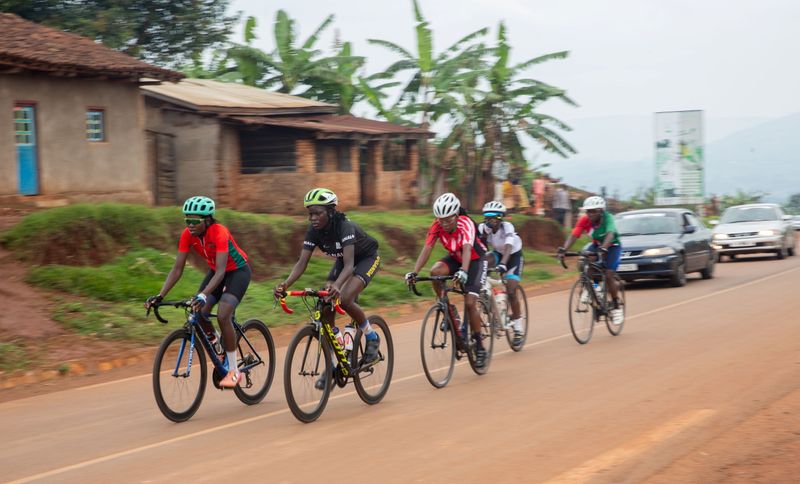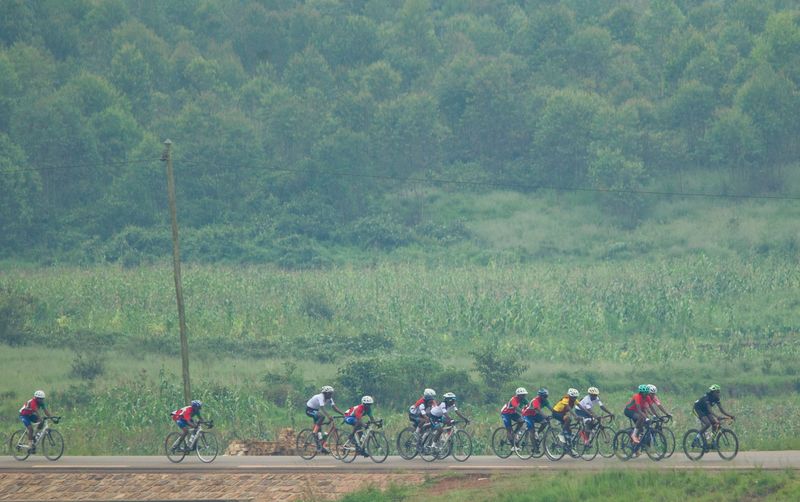NAIROBI (Reuters) – For 19-year-old Burundian Adelphine Nimfasha, regularly carrying more than twice her own weight in rice on her father’s bicycle proved to be excellent – albeit unusual – preparation for becoming a professional cyclist.
On Sunday, Nimfasha came sixth in Africa’s first international women’s cycling competition after a fall cost her the lead she had held for most of the way.
“I didn’t give up but rose up, took my bicycle, and proceeded to finish the race,” said Nimfasha, who finished in the top three in national competitions in Egypt and Nigeria before the latest competition, held in her home country.
Her determination earned her the road cycling “combativity” award. Two Kenyans and a Ugandan won the top three prizes.
Cycling is gaining popularity as a sport in Burundi, where bicycles are already an essential part of life for many. But resources are limited.
“The bicycles are not … suitable. There is also a financial problem – organising training requires huge financial means to accommodate and feed participants for three or four months,” said Prosper Ngenzirabona, a coach.
Cyclists are hopeful that Burundi’s move to host the first African competition of its kind will help change that.
“We (the Burundian team) trained for three weeks, others trained for three months,” said Nimfasha, adding that more training will help the team secure podium finishes.
Cycling has been important to Nimfasha since she was a child. In her home area of Gihanga, women are not discouraged from riding them as they are in many other parts of the region.
“My parents would send me to fetch water and carry rice from the fields at the harvest and I could pack up to 150 or 120 kilos of rice. During that season my father could not hire other workers, it was me who ensured the transport,” she said.
She hopes to be an internationally celebrated athlete like Francine Niyonsaba, the Burundian runner who won silver in the 2016 Rio Olympics and broke a 2,000 metre world record in September this year.
“Now I want to become for cycling what Niyonsaba is for athletics.”
(Reporting by Nairobi Newsroom; editing by Philippa Fletcher)

